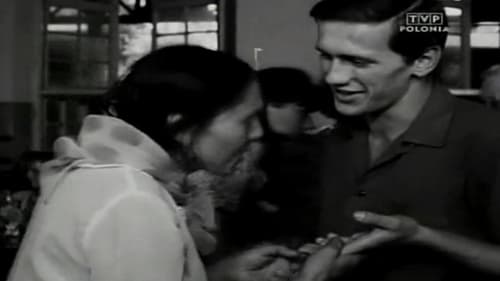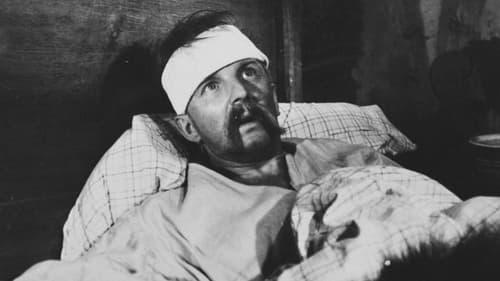Andrzej Kurylewicz
Рождение : 1932-11-14, Lwów, Lwowskie, Poland [now Lviv, Ukraine]
Смерть : 2007-04-13

Conductor

Original Music Composer

Music
Adaptation of novel by Eliza Orzeszkowa. The film is set in 1886 in Lithuania, is spins around a conflict between Bohatyrowicz family and aristocrat family in Korczyn. Against the background of the social and family disputes was shown topic of love between Justyna Orzelska, niece of Benedykt Korczyński, and Jan Bohatyrowicz. Will their love be strong enough to break the mental barrier that separates the world of Bohatyrowicz from the world of Korczyński?

Music
An officer stationed in a remote Ukranian outpost at the end of the First World War is dying of consumption. Suffering from feverish dreams and hallucinations, he begins to collect religious art and attends seances.

Original Music Composer

Music
18 years old boy struggles to make decisions about his future.

Music
The title character is a professor looking to replace humans with cyborgs. His supremely creepy assistant Traumer, strikingly played by Majewski regular Andrzej Rausz, is one such creation. Professor H. intends to transpose Traumer’s brain with that of a renowned scientist, but is in for a surprise. A dark film in every sense, DOCENT H. is particularly noteworthy for its soundtrack, consisting of eerie whirs and beeps interspaced with snatches of Bach’s immortal “Toccata and Fugue in D Minor.” (from: http://www.fright.com/edge/JanuszMajewski.htm)

Music
The story of a Pogorzelski nobleman who settled in the castle in Samsonów to renovate a damaged building. However, he is disturbed by the ghost of the former owner.

Music
A viewer sees how a picture of a horse appears on a white sheet of paper. The horse emerges from successive traces of a black felt-tip pen. The horse is shown in various positions and fragmentary close-ups. It also takes on a disturbing abstract shape of a transparent huddled creature. It looks dead with its lack of limbs, visible ribs and deep eye sockets. It evokes associations with horses who were victims of hostilities. Its contours are blurring. It falls apart. The animated film for adults directed by Jan Tkaczyk, the cinematographer of several dozen animated films. The director used drawings by Barbara Jonscher, a Polish painter and cartoonist, from the ‘Arsenal’ generation. The context of her works often refers to literary works. The series of horse drawings was inspired by Bertold Brecht's poems with anti-war meaning. Andrzej Kurylewicz is the author of jazz music in this film.

Music

Compositor
A pleasant, open-faced young man (Jan Machulski) comes to live in a boarding house with three peculiar women.

Music
The movie "L'instant de la paix" consists of three segments: 1. "Les rideaux blancs" (France) 2. "Berlin N 65" (West Germany) 3. "Matura" (Poland)

trumpet
Documentary of the Kurylewicz Quintet rehearsing a jazz piece in a recording studio. After a few fits and starts the band finally hits its stride.

Music
Instead of coming to her own engagement party, Joanna throws herself into New Year's Eve partying. Her fiancé follows her lead.

Music
1962’s SZPITAL (HOSPITAL) is set entirely in a claustrophobic hospital room where a male patient is confined. Throughout the film the room is invaded by a variety of strange people

Music
The 1937 trial of communist journalists, working for the same student magazine in Vilnius, is shown through the tragic life of the paper's young collaborator Julek Szulc.

Music
A boy plays alone in a well of a big city yard. His mother, being in their tenement flat, passes him an empty bottle using a string. The boy has to go to a shop. His alcohol fun begins – at an off-licence shop, at a purchasing centre, at a gate.

Music
Долго живший в Париже, Седой приехал в Варшаву, где когда-то воевал. Все изменилось в городе, другими стали люди, улицы и дома. Ничего не узнает Седой: Варшава живет сегодняшним днем, а он в прошлом. Седой решает, что в этом новом городе для него нет места, и возвращается в Париж.

Original Music Composer

Himself (uncredited)
The first Polish film about jazz and, at the same time, an unusual documentary record of a concert of two legendary music bands: Hot Club Melomani and The Komeda Sextet.












